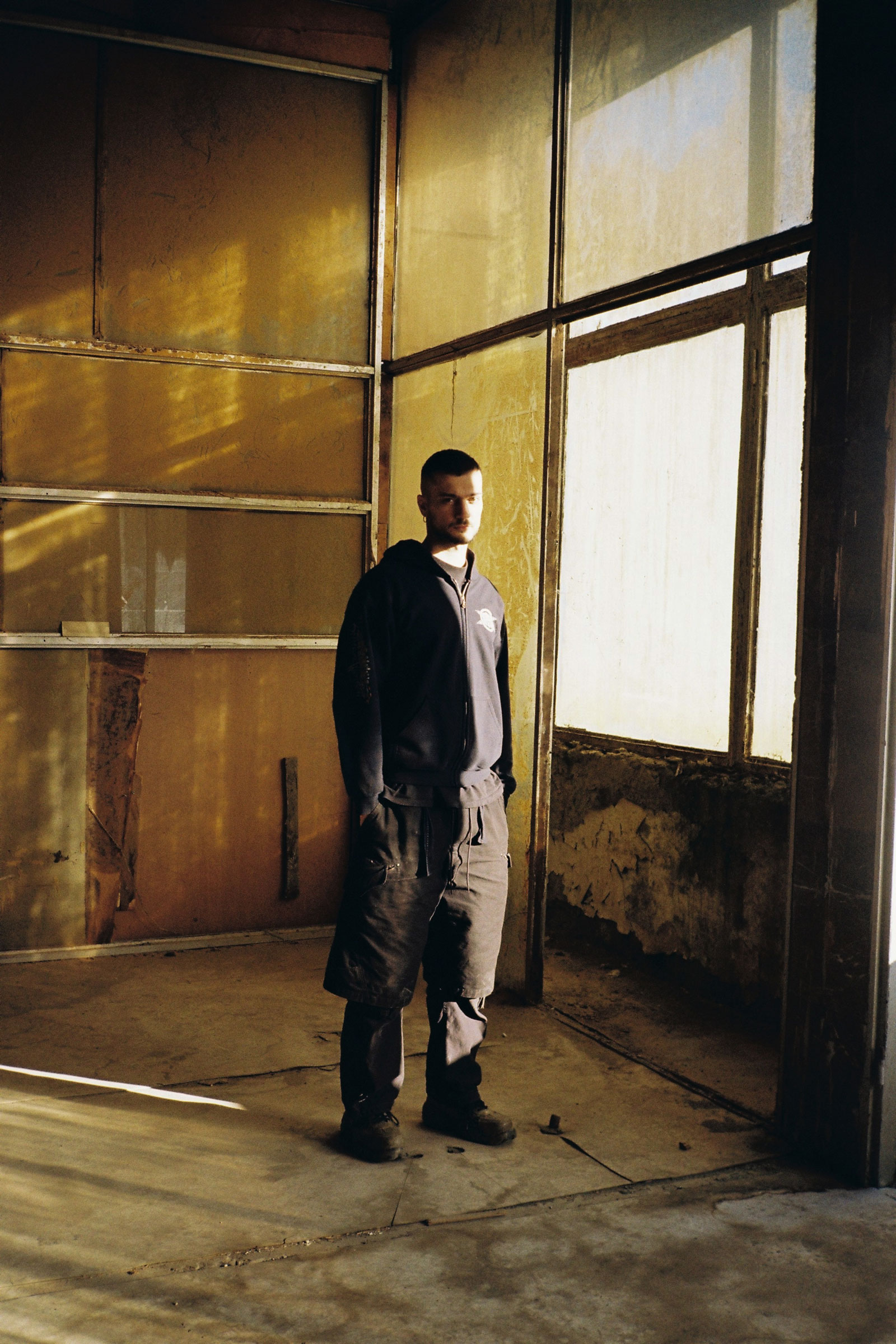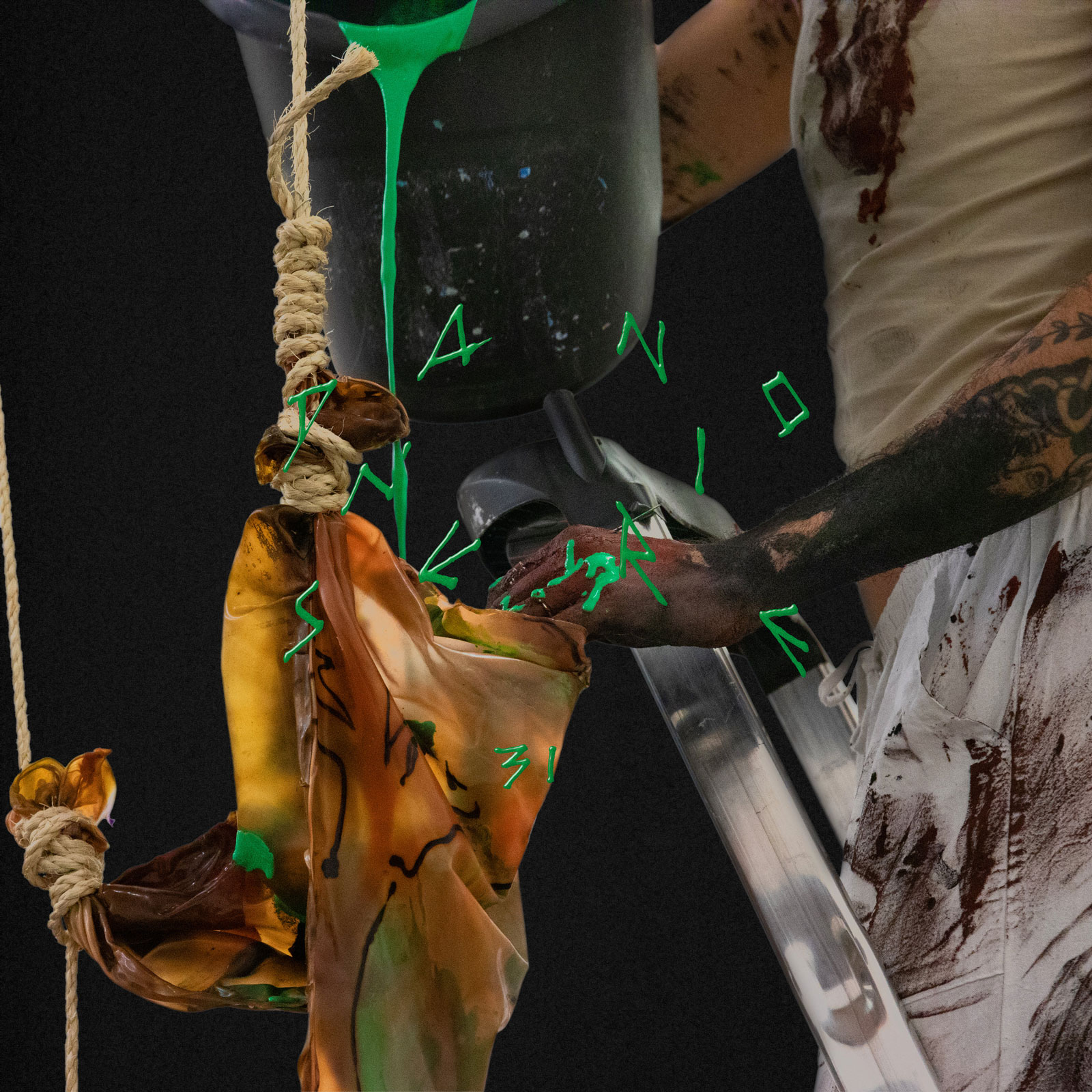“The act of listening became a kind of perceptual discipline, and over time, that sensitivity evolved into a need to respond.”

A truth we seem to collectively disregard is that raving can very often be introspective and solitary – but Cem Dukkha’s (known simply as CEM) authentic DJing style nods to this acknowledgment. His sound protrudes as an enclave, situated at a slight distance from the austere, solely hedonic nightlife, and instead digs a spiritual value within the pursuit of pleasure. There’s many attributes discernible in CEM’s music – it is visceral, emotive, and intentional. As he slowly carved his way around and through Berlin’s nightlife, it rendered a lot of great outcomes for the Vienna-born and raised pundit: he’s not only working as an acknowledged DJ in the scene, but also as one of the three originators of Herrensauna, Berlin’s prominent party and curatorial force. We were delighted to catch him just as FORMA, CEM’s first album and latest accomplishment, recently dropped. The 6 song LP further debriefs the abstract ways in which the speculative transfers into the material world, just like our spirits transcend into the corporeal on a clammy dance floor. It is all about repetition, labour and commotion, in a way that is familiar to us all, whatever our relation to raving may be at the moment.
No matter how tumultuous or disparate, none of CEM’s pursuits are in a vacuum – his work is deliberate and critical, drawing respective attention to our most pressing issues. Whether it is the stifling environment for queerness or Germany breathing down the necks of immigrants and supporters of Palestine, CEM is not afraid to stand up audibly and urge others toward joint action.
In our interview, we touched down on what a lot of these things mean – both literally and allegorically. Read below for a dissection on CEM’s becoming, opinions on DJing, and the unmatched voyeurism of a rave.
Hello Cem!! Perhaps we can start by talking a bit about your upbringing in Vienna and later making the move to Berlin?
I grew up in a Turkish/Kurdish household in Vienna, shaped by the usual pressures of a working-class immigrant family — expectations around assimilation, overachievement, and the quiet duty to secure a stable future in a country that always felt somewhat conditional. Being queer added another layer of tension and made certain parts of myself harder to place. When I moved to Berlin under the pretext of continuing my studies, it was also a way of carving out space, a soft escape that gave me permission to imagine a different life, one rooted in expression rather than survival.
I definitely relate on the switch towards expression once leaving constraints and expectations behind. Congrats on your new album, I love the name FORMA! Can you tell us more about its inception and the concept behind it?
Thank you! I’m really glad FORMA is finally out in the world and people can engage with it on their own terms. The concept initially grew out of Mauro’s idea for a series of action painting performances that loosely interrogated Plato’s theory of forms — the gap between ideal structures and their messy, real-world manifestations. From there, we started anchoring those abstract ideas in more grounded themes: labor, discipline, and the way time is experienced through repetition and gesture.
As the work progressed, the bells gradually became a central element. They began to dictate the performers’ movements not only rhythmically, but also conceptually serving as cues, constraints, and points of reference.
The music video for Bells Corrupt is a very hypnotic, recorded recollection of the performance with the same name and ethos as your album. Tell us about the process of making music for it!
I started with these soft, almost comforting bell tones, and gradually warped them into something more insistent, more anxious. There’s a kind of unraveling in the track, like the sound is struggling to hold its form.
The idea was to mirror the psychological effect the bells have on the performers who get corrupted by the unrelenting repetition of the bell sounds.
What was the moment that sparked your musical pursuit, if you can pinpoint it in time?
I don’t think there was a singular spark, but rather a gradual attunement to the fact that sound is immanent and embedded in the everyday. The act of listening became a kind of perceptual discipline, and over time, that sensitivity evolved into a need to respond. Eventually it felt less like a pursuit and more like a natural extension of being in relation to my surroundings.
Speaking of that: being established in the industry, can you still rave unconstrained?
Without wanting to sound too jaded, I think my front-row raver days are gradually winding down. I still engage with those spaces, but more often as a way to connect with friends or to observe. The voyeuristic aspect has always been what drew me to these environments in the first place anyway and that still holds significance for me.
So far, you have been active in Herrensauna, yet now you diverged into making this album by yourself. Can you tell us more about the recent shift in your path?
I started making music early on in my life and when I got in touch with electronic music and DJing it consumed a big chunk of my early adulthood. At some point, after listening to so much music and DJing it started to feel more like a service than artistic expression to me. I love it as an art form but it reaches its limits and I wanted to create my own musical world that I had been accumulating and imagining for such a long time.
What are your wishes for the release of this album?
I try not to attach too many expectations to how the album will be received. What I do hope, though, is that it opens up opportunities to perform live more regularly.
Best post-rave hangover remedy?
A YouTube marathon of MTV‘s chill out zone from the 90s.
Sweet! Finally, what’s been on your mind or schedule these days, outside of the DJ/producing/organising realms?
I’d like to use this as an opportunity to shed more light on the political climate in Germany, which feels increasingly hostile, especially toward dissenting voices and those showing solidarity with Palestine. A close friend of mine is currently facing deportation for their political activism, part of a broader move by the German state to criminalise protest and repress opposition under the guise of Staatsräson. It’s deeply unsettling to witness how quickly legal gray zones are being used to target individuals, particularly non-German citizens, for participating in actions that challenge state narratives.
Some friends of mine started 3ezwa, a legal fund set up to support those facing repression for their solidarity with Palestine. I’d encourage anyone to check it out and support in whatever way they can.
Thank you for sharing and for all of your answers. It’s indeed getting really harsh, but your friends’ actions are brave and admirable. We’re gonna link it below.

Notifications